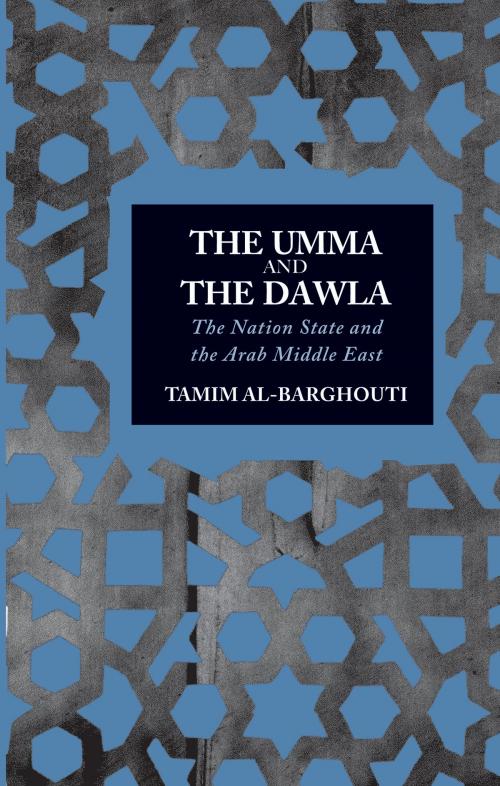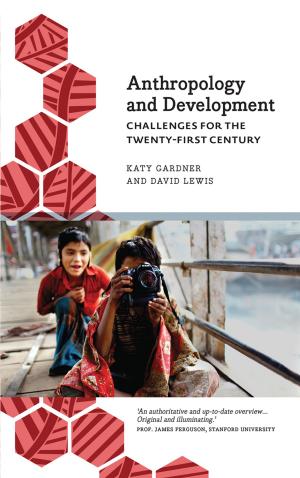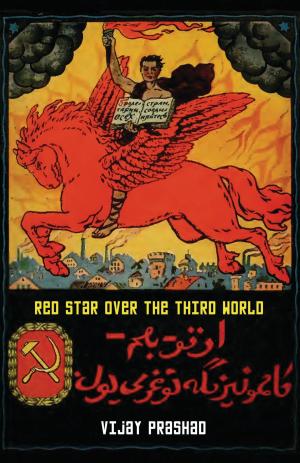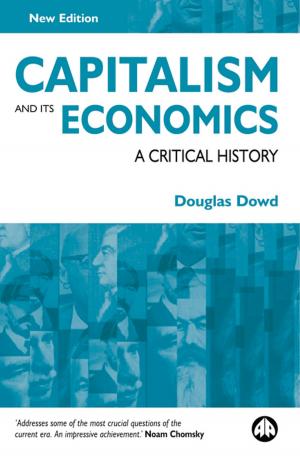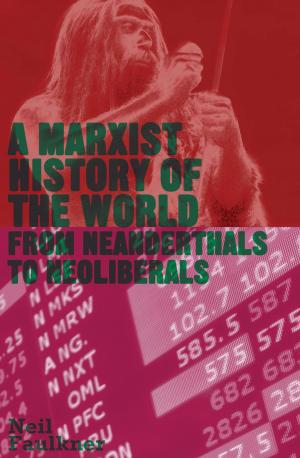The Umma and the Dawla
The Nation-State and the Arab Middle East
Nonfiction, Religion & Spirituality, Philosophy, Eastern, Religious| Author: | Tamim Al-Barghouti | ISBN: | 9781783716449 |
| Publisher: | Pluto Press | Publication: | March 13, 2015 |
| Imprint: | Pluto Press | Language: | English |
| Author: | Tamim Al-Barghouti |
| ISBN: | 9781783716449 |
| Publisher: | Pluto Press |
| Publication: | March 13, 2015 |
| Imprint: | Pluto Press |
| Language: | English |
This book argues that the Arab states in the Middle East have failed to provide security for their citizens or define themselves along the lines of traditional nation states. Due to continuous war, they have been unable to foster development and prosperity.
The author argues that these failures have led to the development of an Islamic political theory which is based around the non-territorial concepts of the Umma and Dawla. Each concept is explored in detail and the author explains how crucial they are in explaining the difference between Western policy and the priorities and the identity of the Arab world.
This unique book should be required reading for students of Middle East international relations and Islamic political theory.
This book argues that nationalisms in the Arab Middle East were colonial constructs to legitimize the colonially created nation states. Such states were structured in a manner that guaranteed their behavior as colonies after their independence. There dependence was in fact the condition for their formal independence.
The book contrasts these colonially introduced national identities to the pre colonial Islamic identity the revolved around the concepts of Umma and Dawla. Both concepts have not yet been adequately dealt with in English and have usually been mistranslated into nation‰ and state‰ respectively. The Book provides a thorough explanation of these concepts by studying canonical Sunni and Shiite Islamic texts of political theory and jurisprudence. The Book also shows that understanding such concepts might explain how public opinion is formed in the Middle East and how Arab governments gain and loose legitimacy.
Finally the book traces the local elites failed attempts to reconcile the colonially introduced identity that revolves around the colonially created nation state and the native culture that sets political allegiance in the whole Muslim community. Such a failure allowed the Dawla, a non-territorial, non-sovereign form of organization whose allegiance lies with the whole Muslim Umma, to reemerge as a means of social, political in sometimes military, form of organization, thus the variety of non state Islamic actors throughout the region.
This unique book should be required reading for students of Middle East international relations and Islamic political theory.
The author argues that these failures have led to the development of an Islamic political theory which is based around the non-territorial concepts of the Umma and Dawla. Each concept is explored in detail and the author explains how crucial they are in explaining the difference between Western policy and the priorities and the identity of the Arab world.
This unique book should be required reading for students of Middle East international relations and Islamic political theory.
This book argues that nationalisms in the Arab Middle East were colonial constructs to legitimize the colonially created nation states. Such states were structured in a manner that guaranteed their behavior as colonies after their independence. There dependence was in fact the condition for their formal independence.
The book contrasts these colonially introduced national identities to the pre colonial Islamic identity the revolved around the concepts of Umma and Dawla. Both concepts have not yet been adequately dealt with in English and have usually been mistranslated into nation‰ and state‰ respectively. The Book provides a thorough explanation of these concepts by studying canonical Sunni and Shiite Islamic texts of political theory and jurisprudence. The Book also shows that understanding such concepts might explain how public opinion is formed in the Middle East and how Arab governments gain and loose legitimacy.
Finally the book traces the local elites failed attempts to reconcile the colonially introduced identity that revolves around the colonially created nation state and the native culture that sets political allegiance in the whole Muslim community. Such a failure allowed the Dawla, a non-territorial, non-sovereign form of organization whose allegiance lies with the whole Muslim Umma, to reemerge as a means of social, political in sometimes military, form of organization, thus the variety of non state Islamic actors throughout the region.
This unique book should be required reading for students of Middle East international relations and Islamic political theory.
This book argues that the Arab states in the Middle East have failed to provide security for their citizens or define themselves along the lines of traditional nation states. Due to continuous war, they have been unable to foster development and prosperity.
The author argues that these failures have led to the development of an Islamic political theory which is based around the non-territorial concepts of the Umma and Dawla. Each concept is explored in detail and the author explains how crucial they are in explaining the difference between Western policy and the priorities and the identity of the Arab world.
This unique book should be required reading for students of Middle East international relations and Islamic political theory.
This book argues that nationalisms in the Arab Middle East were colonial constructs to legitimize the colonially created nation states. Such states were structured in a manner that guaranteed their behavior as colonies after their independence. There dependence was in fact the condition for their formal independence.
The book contrasts these colonially introduced national identities to the pre colonial Islamic identity the revolved around the concepts of Umma and Dawla. Both concepts have not yet been adequately dealt with in English and have usually been mistranslated into nation‰ and state‰ respectively. The Book provides a thorough explanation of these concepts by studying canonical Sunni and Shiite Islamic texts of political theory and jurisprudence. The Book also shows that understanding such concepts might explain how public opinion is formed in the Middle East and how Arab governments gain and loose legitimacy.
Finally the book traces the local elites failed attempts to reconcile the colonially introduced identity that revolves around the colonially created nation state and the native culture that sets political allegiance in the whole Muslim community. Such a failure allowed the Dawla, a non-territorial, non-sovereign form of organization whose allegiance lies with the whole Muslim Umma, to reemerge as a means of social, political in sometimes military, form of organization, thus the variety of non state Islamic actors throughout the region.
This unique book should be required reading for students of Middle East international relations and Islamic political theory.
The author argues that these failures have led to the development of an Islamic political theory which is based around the non-territorial concepts of the Umma and Dawla. Each concept is explored in detail and the author explains how crucial they are in explaining the difference between Western policy and the priorities and the identity of the Arab world.
This unique book should be required reading for students of Middle East international relations and Islamic political theory.
This book argues that nationalisms in the Arab Middle East were colonial constructs to legitimize the colonially created nation states. Such states were structured in a manner that guaranteed their behavior as colonies after their independence. There dependence was in fact the condition for their formal independence.
The book contrasts these colonially introduced national identities to the pre colonial Islamic identity the revolved around the concepts of Umma and Dawla. Both concepts have not yet been adequately dealt with in English and have usually been mistranslated into nation‰ and state‰ respectively. The Book provides a thorough explanation of these concepts by studying canonical Sunni and Shiite Islamic texts of political theory and jurisprudence. The Book also shows that understanding such concepts might explain how public opinion is formed in the Middle East and how Arab governments gain and loose legitimacy.
Finally the book traces the local elites failed attempts to reconcile the colonially introduced identity that revolves around the colonially created nation state and the native culture that sets political allegiance in the whole Muslim community. Such a failure allowed the Dawla, a non-territorial, non-sovereign form of organization whose allegiance lies with the whole Muslim Umma, to reemerge as a means of social, political in sometimes military, form of organization, thus the variety of non state Islamic actors throughout the region.
This unique book should be required reading for students of Middle East international relations and Islamic political theory.
